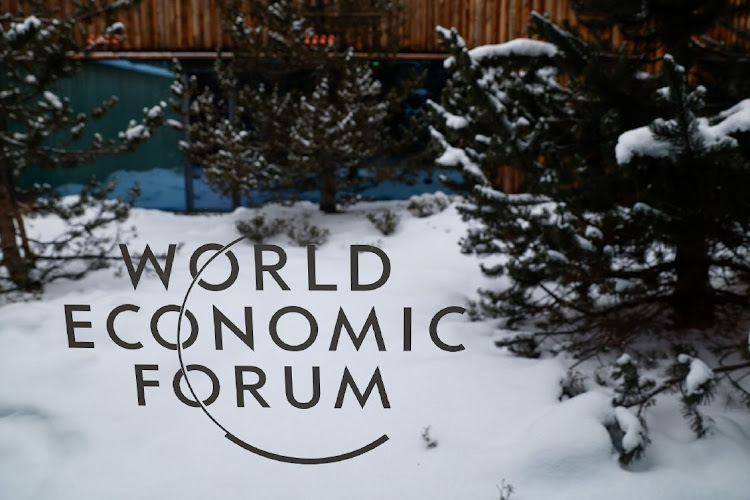Team SA faced a tough task trying to lure investment at Davos

The state of the country can no longer entice a real-economy investor to think of South Africa
Presidents, CEOs of major companies, academic heavyweights and global influencers attended the annual World Economic Forum (WEF) this week. It’s a group of elites talking about things that affect none of them, but do affect the poor, most of whom are in developing countries.
The temptation is to say the WEF is a talkshop with no action and accountable people, but this is not the case. The headline show is a sideshow, while the sideshows individual countries hold with investors are the main show.
Every year there is a theme, which is usually long term and structural. For financial markets the theme is a non-event, especially in the short term. But for policymakers who must think of long-term global trends that will affect their economies and populations, the WEF has relevance.
The theme for this year is “Co-operation in a fragmented world” — apt, given the Russian invasion of Ukraine. The US and Europe lead support for Ukraine, while such countries as China, India and several in the Middle East and Africa either back Russia or least avoid publicly condemning it.
There are also differences in climate change policies, where the rich countries in Europe have gone back to using coal because of the energy crunch sparked by the war in Ukraine, while they are pushing for the end of coal use by emerging economies, which have contributed less to climate change.
And then there is the fight to bring inflation back within central bank targets, where emerging economies acted first and fast in response to multi-decade high inflation while advanced economies reacted too late.
This came on top of the hoarding of Covid vaccines by advanced economies while poor countries buried thousands of their citizens who perished because they remained unvaccinated.
More recently, because of food shortages caused by the war in Ukraine, hunger haunts parts of Africa such as Ethiopia. The world goes about its business without noticing.
Fragmented world? Yes. Co-operation? What co-operation?
President Cyril Ramaphosa opted out of the event because of load-shedding at home. The minister of finance, Enoch Godongwana, was left to wing it with investors on how the country will end load-shedding and to provide assurances that South Africa is a good investment destination.
Let’s face it, there is little about South Africa to entice a real-economy investor that has funds to invest in emerging markets. When the likes of KFC closes outlets because of load-shedding, what can small businesses do to keep operating? When load-shedding happens, it’s traffic congestion and accidents because traffic lights don’t work; it’s a lack of telecommunications because the network towers’ batteries run flat; it’s the taps running dry because the water pumps stop working; it’s online schools that can no longer teach; and it’s business interruption.
The cost for business increases through having to find alternative energy sources while revenue collapses. At some point, those businesses that still keep people employed while they cannot operate and earn revenue will be forced to cut jobs and send thousands into unemployment.
“Let’s face it, there is little about South Africa to entice a real-economy investor that has funds to invest in emerging markets”
These are all developments that investors can foresee. They will chose to invest in financial markets from which they can extract their funds as quickly as they went in. Unfortunately, that’s not the real economy where jobs can be created.
What should team South Africa have said in Davos? Economic reforms should have dominated the conversation, with the focus on network industries, starting with an electricity stabilisation action plan, along with roads, rail, ports, and water infrastructure. Plus safety and security, the maintenance of law and order and the enforcement of contracts.
Davos needs to be followed by action to implement these reforms. The government and politicians must forget short-term populist utterances and focus on the things that will ensure a sustainable economic recovery and job creation. Anecdotal evidence suggests the public's patience is at its limit.
The Arab spring happened due to a much less severe crisis. No-one should be surprised if it happens here.
